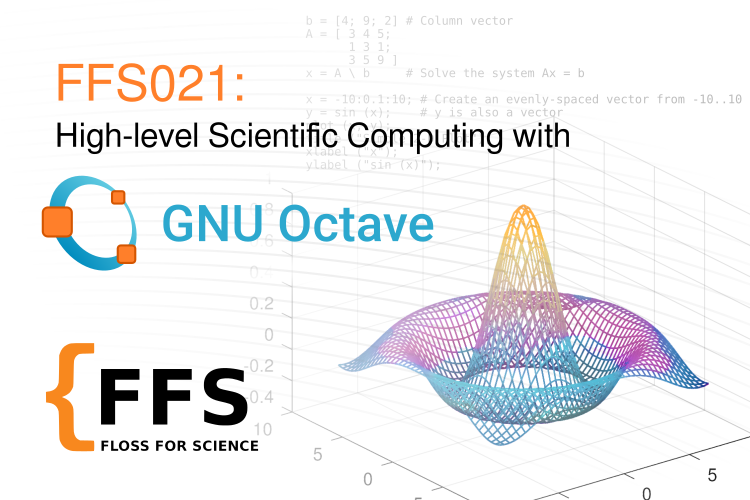
EP021 High-level Scientific Computing with GNU Octave
Outline
In episode 21, we interviewed Juan Pablo Carbajal, an Argentinian physicist currently working as a postdoctoral researcher in the Department of Urban Water Management at the ETH domain in Switzerland. We had a great discussion about GNU Octave and how it can help scientists. We compared its core functions and its expandability through packages to its commercial equivalent Matlab and its toolboxes. An interesting feature of GNU Octave that we explored with Juan is the possibility to migrate code from Matlab directly to GNU Octave and to a certain point maintain code compatible with both. Juan shared with us that since the introduction of an integrated GUI in 2015, he noticed a continuous growth in popularity for the project. We then discussed about a few of the reasons why companies are interested by GNU Octave and why universities should teach using free/libre software. Before asking our usual quick questions, Juan talked with us about the reasons why FLOSS is important for science and the importance of exposing non-FLOSS users to the benefits of FLOSS.
About Juan Pablo Carbajal:
Juan Pablo is a physicist from Argentina, currently living in Switzerland. He has been using GNU Octave for more than 15 years. GNU Octave is one of the FLOSS tools he uses for research and development (applied complex systems). He is also a promoter of education and training using FLOSS. He provides GNU Octave technical training at CERN, and in his small non-profit, which also promotes programming and robotics among teenagers using FLOSS. In his free time he contributes to GNU Octave, maintains a few small packages, and provides help in the mailing list. You can know more about Juan Pablo on his website.
About GNU Octave:
GNU Octave is a high-level language, primarily intended for numerical computations using a language that is mostly compatible with Matlab. Octave has extensive tools for solving common numerical linear algebra problems, finding the roots of nonlinear equations, integrating ordinary functions, manipulating polynomials, and integrating ordinary differential and differential-algebraic equations. It is easily extensible and customizable via user-defined functions written in Octave’s own language, or using dynamically loaded modules written in C++, C, Fortran, or other languages.
Links
- GNU Octave home page
- Octave Forge: packages for GNU Octave
- GNU Octave’s wiki
- GPU acceleration for GNU Octave
- GNU Octave virtual classroom (Spanish)
- Publications using Octave
- Introduction to GNU Octave (2nd Edition)
- Octave’s projects page
- Summer of code ideas
Listen to this episode here or add our rss feed to your favourite podcast application.









